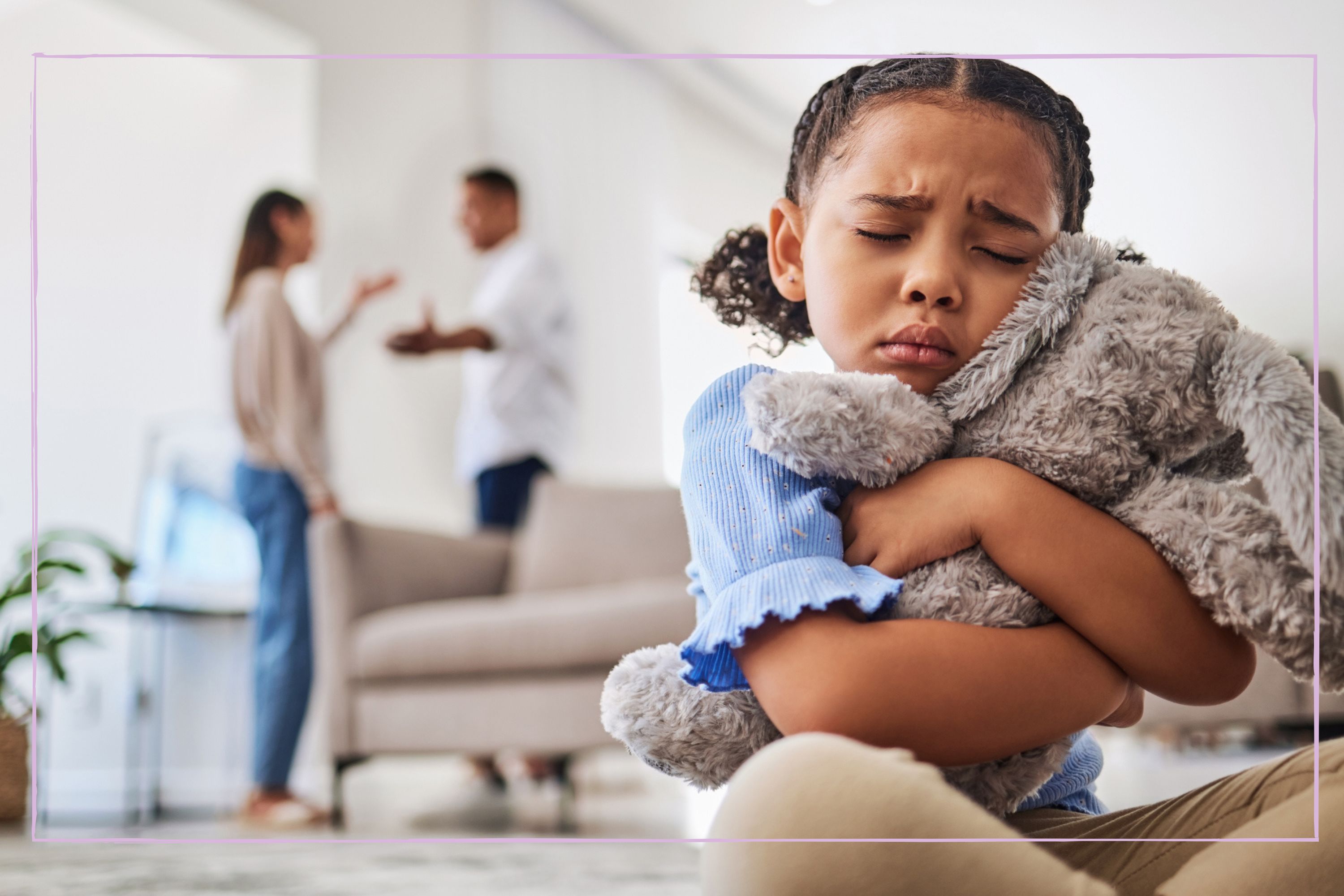Staying together 'for the kids' can have damaging consequences - divorce therapist explains 3 reasons why
Sometimes, you're just better off apart


Although parents think staying together for the sake of the kids is best, it can come with some very negative consequences. We spoke to a child therapist who reflects on three ways this can be harmful for youngsters growing up.
It's unsurprising that breaks ups after a baby are quite common - tiredness, body changes and little time or inclination for intimacy can shake even the most stable of marital foundations. Sometimes, the thought of how to talk to kids about divorce and how overwhelming it feels, means that some couples decide staying together is preferable. Adult children of divorce are now candidly expressing what they wish their parents had done differently, with some insisting it would've been better if the inevitable hadn't been delayed, and parents didn't stay together just for the kids.
GoodToKnow family editor, Stephanie Lowe, shares how she believes her parents spent far too long in an unhappy marriage and should've divorced long before they did. She said "I spent my childhood watching as my parents battled through an unhappy marriage 'for the sake of the children'. My parents were married for 22 years, my older sister was the first of four children born to a newly-wed 18-year-old mother. We had some really happy years as a family but these have quickly become overshadowed by the last five years of their marriage. I remember wishing at 15 they just got divorced already, it was so painfully evident they were unhappy. Kids aren't stupid... they pick up on a lot."
Hannah Flood is a therapist, and founder of My Thriving Child - providing expert input for what children need to thrive during divorce. Hannah agrees that being apart is better for children if a relationship isn't working out, telling us "Staying together for the sake of our children is tempting. We so want that secure family unit for them. But if the family unit is not secure and there are toxic or damaging dynamics between parents, this can end up having a worse effect on children. What we need to remember is our children see our marriage as a blueprint for how relationship functions and in order to set them up for healthy relating patterns later in life, we want to show them what healthy relationship is, both through our marriage and through our relationship with them."
Three consequences of staying together for the kids
- Child feels the need to form alliances. Staying with a partner you no longer like, means having to keep up a pretence of love that can become exhausting. As the mask of their true feelings slip, parents can be more likely to try and get their children on board as allies, as they head into conflict battles with the other parent. This behaviour can result in children feeling caught between their parents, and the ensuing dysfunctional dynamic actually damaging to parent-child relationships. Feeling the need to disentangle from these difficult feelings, means children can withdraw from their parents physically, decreasing communication as they struggle with insecure attachments to them.
- Parentification. This means expecting or requesting children to take on adult roles. Emotional parentification subjects children to the difficulties of their parents relying on them for emotional support. Hannah told us "If a marriage is toxic, children can be pulled in to all sorts of unhealthy coping strategies which cause anxiety. Parentification can commonly happen when a child sees one parent is finding it hard to cope, and steps in to the role of reaching/parenting that parent, causing the child to grow up too soon. When a child is aware of conflict within the home this causes increased anxiety and low mood for children, stopping them from being able to be free to dream, play and thrive, because their mind is consumed by the conflict at home." Consequences of parentification include poor emotional regulation, no time for their own peer relationships, and depression.
- Poor modelling of healthy relationships. Staying married for the children models behaviour parents don't want their own children to perpetuate. Children could believe they should stay in any unhealthy relationship, because they don't know any different. Moreover, living in a high conflict environment could result in poor conflict management skills for the child, and a tendency to continue the cycle of destructive habits and sometimes violence. Children need boundaries, communication, and other positive skills modelled appropriately, to form lasting and healthy adult relationships of their own.
It's easy to see the good intentions parents have, by maintaining a united front for their children. Reading about the detrimental consequences of divorce can be frightening. There's also the fact that remaining a couple can have serious financial consequences, in the age of often needing a double income to survive.
However, it's always worth weighing up both sides of the argument when making important decisions - there will certainly be times where being apart is preferable to the detrimental effects of staying together out of obligation. Hannah Flood concluded by telling us "Leaving a marriage is never easy, especially when we dreamt of a wonderful family unit, letting go of that dream and the hope of this ever being a reality in the way we wanted can be one of the hardest parts."
We have actionable co-parenting tips for divorced parents, backed by a psychotherapist. We also have tips from a relationship expert for navigating your first co-parenting school holiday, and some vital rules for divorced parents taking kids out of the country for a break.
Parenting advice, hot topics, best buys and family finance tips delivered straight to your inbox.

Hannah is a therapist, coach, and industry expert in what children need to thrive during and after their parents' separation.

Lucy is a mum-of-two, multi-award nominated writer and blogger with six years’ of experience writing about parenting, family life, and TV. Lucy has contributed content to PopSugar and moms.com. In the last three years, she has transformed her passion for streaming countless hours of television into specialising in entertainment writing. There is now nothing she loves more than watching the best shows on television and sharing why you - and your kids - should watch them.